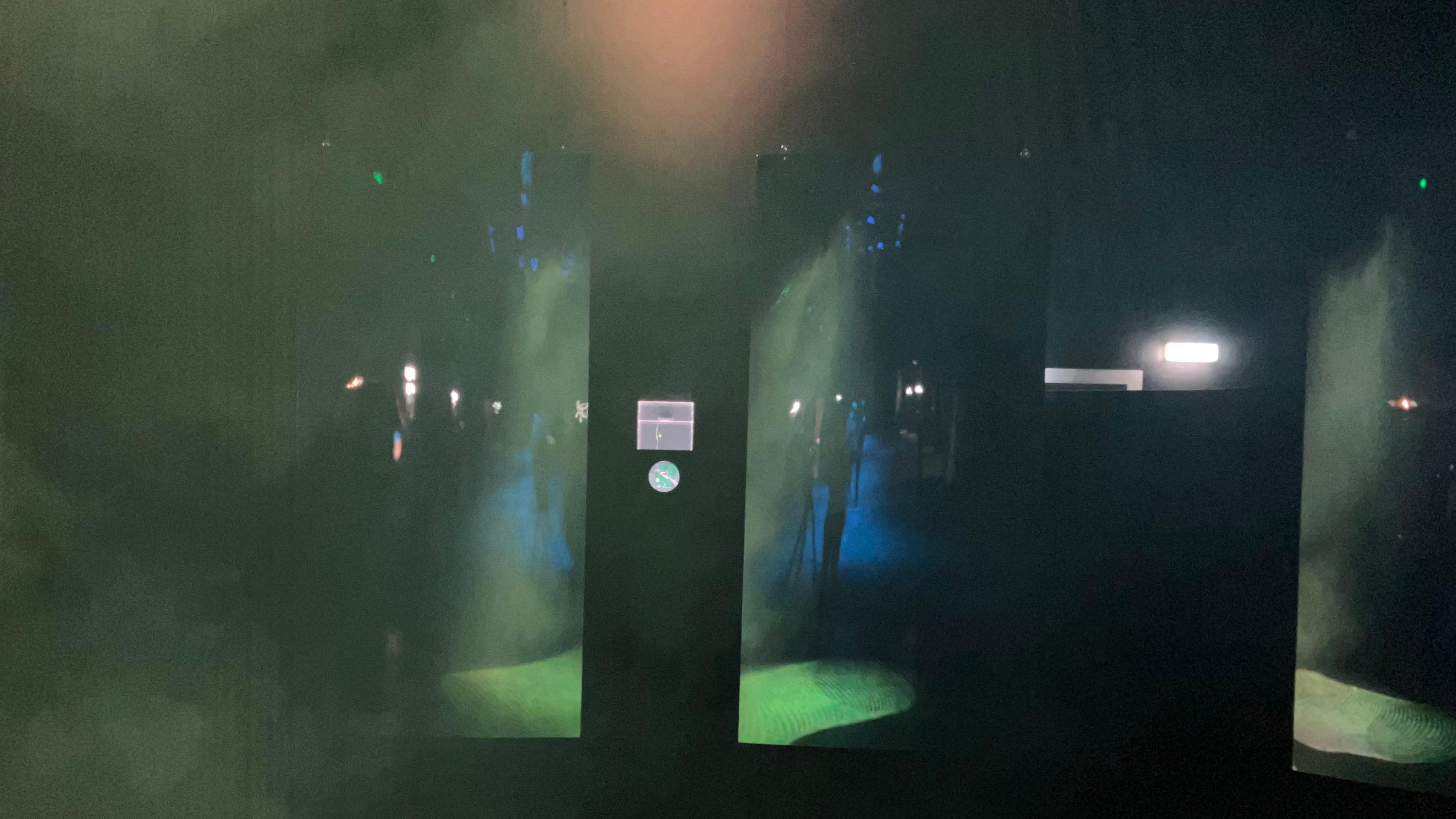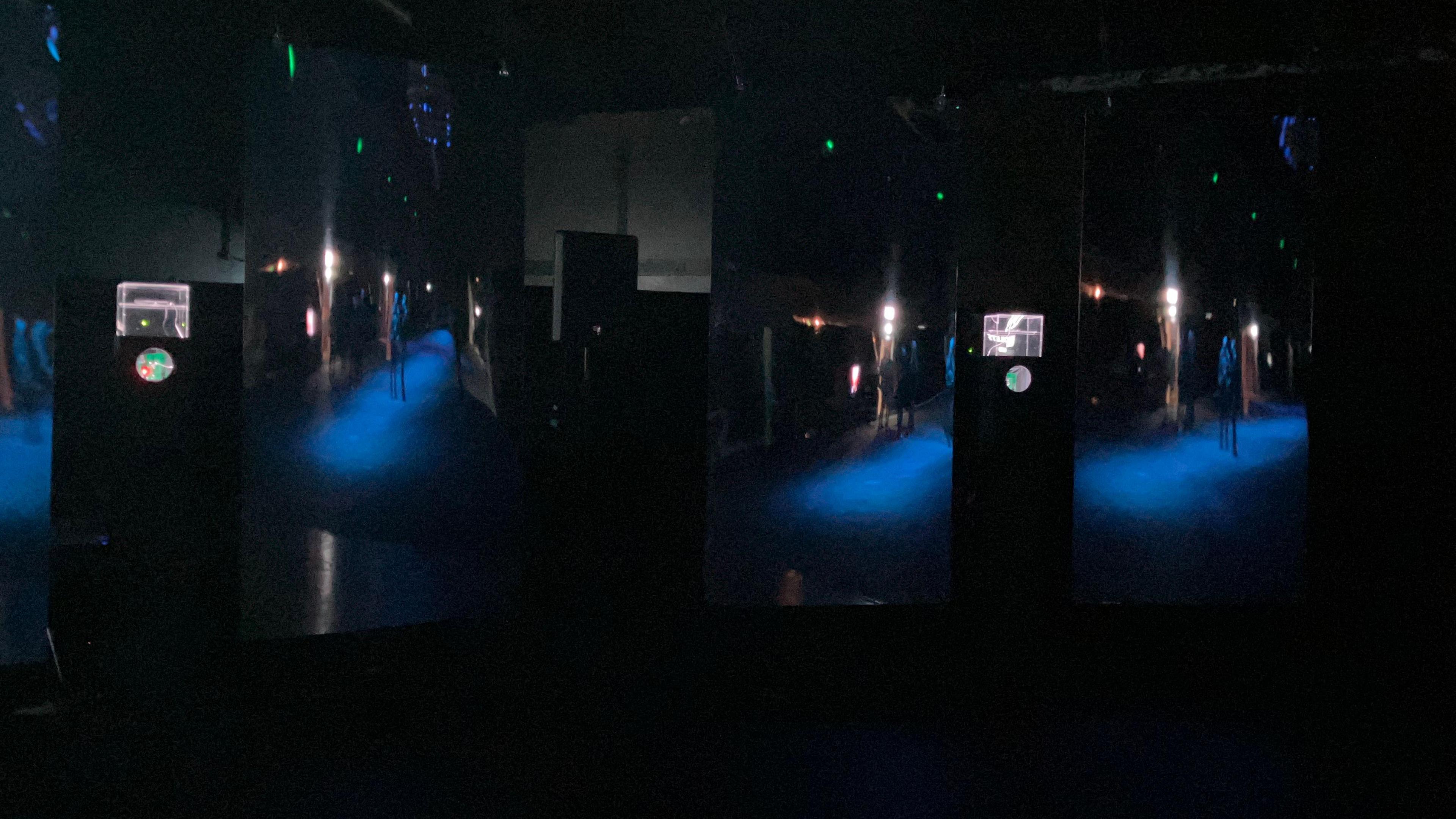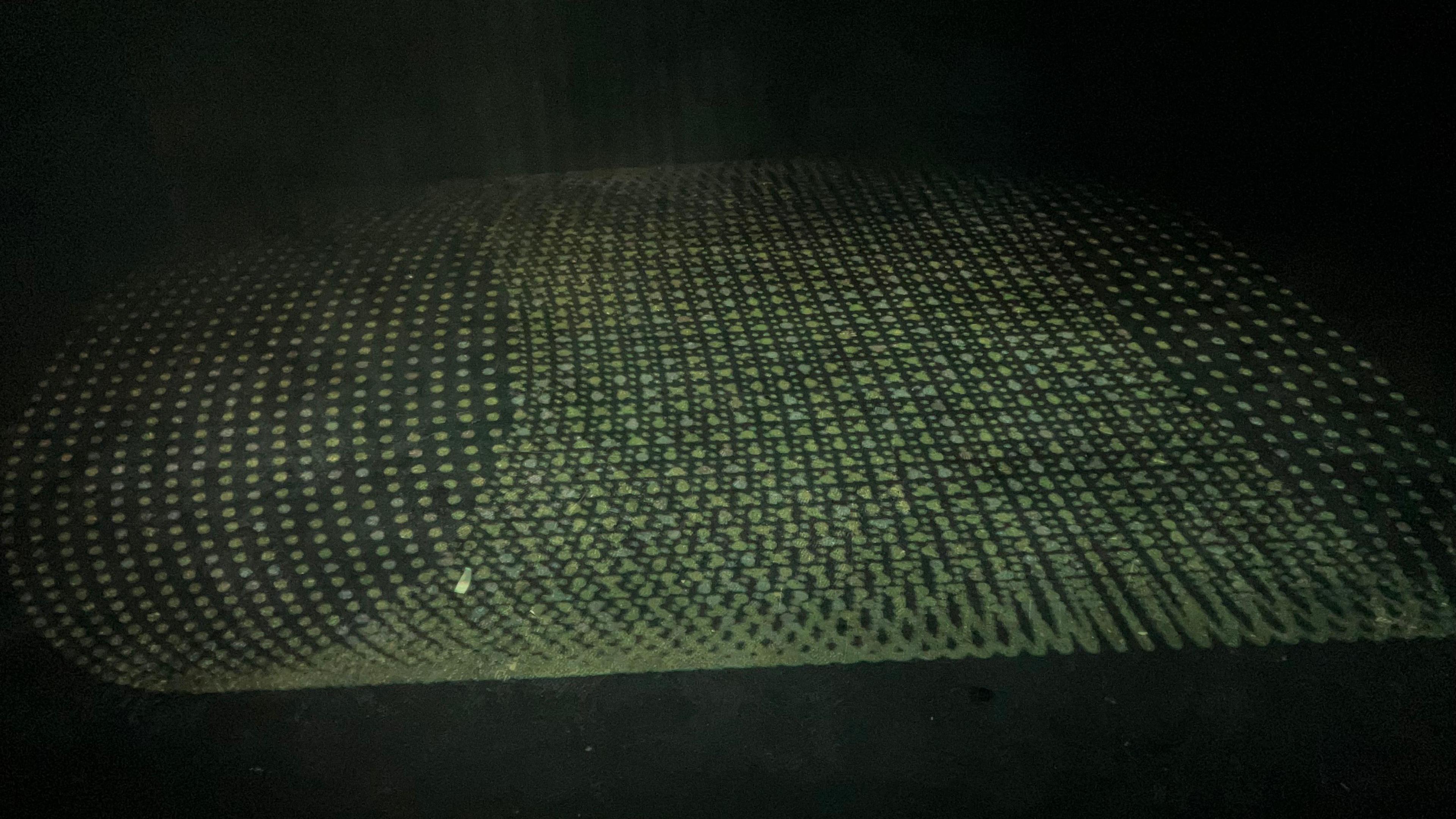Cosmic rays transformed for light and sound show

Particle Shrine is being shown as part of Rotherham's Signals Festival
- Published
A sound and light show combining music and science will be one of the highlights of Rotherham Signals Festival.
Particle Shrine, at the Magna Science Adventure Centre, captures subatomic particles or cosmic rays and transforms them into an immersive sound sculpture.
It features musical compositions and stunning lighting designs using live data from space.
The exhibition opens on 12 February and runs until 27 February.

The display uses a live data feed in Japan
Organisers said the show worked by converting live cosmic ray data into interactive light, using detectors and live readings from an observatory in Japan.
Particle Shrine was created by composer and musician Christo Squier in collaboration with experimental particle physicist Dr Teppei Katori and creative technologist Chris Ball.
It was originally commissioned by the Science Gallery London in September 2022.

The show opens on 12 February at Magna
Mr Squier said: "Particle Shrine represents a groundbreaking collaboration between the fields of physics, music, and art, making abstract scientific concepts accessible by providing visitors with a mesmerising, immersive experience that both informs and entertains."
The Signals Festival offers free music events, workshops and activities across the area between 10 and 18 February.
The youth music festival is a collaboration between Children’s Capital of Culture, Rotherham Music Hub and Rotherham Council’s Events team.
A further highlight will be a premiere performance, by young musicians and dancers, of Particle Dance at Magna on 24 February.